The Simpson Prize 2026

The 2026 Simpson Prize Competition Question
Evaluate the usefulness of diary entries, letters and photographs for providing evidence about the contrasting experiences and perspectives of Australians who served in either the First World War or the Second World War.
Instructions
You are expected to make effective use of a MINIMUM of 4 provided sources from EITHER the ‘2026 Simpson Prize WW1 Sources’ OR the ‘2026 Simpson Prize WW2 Sources.’
Up to half your response should also make use of information drawn from your own knowledge and research.
Information about word or time limits, the closing date, entry forms, and judging can be found at the Simpson Prize official website.
2026 Simpson Prize WW1 Sources
Please Note: These sources can only be used in a response to the 2026 Simpson Prize Question about the First World War (WW1)
Source A
‘Over the Top’, the Western Front, France, 1918. Photographer, Frank Hurley. (AWM EO5988B)
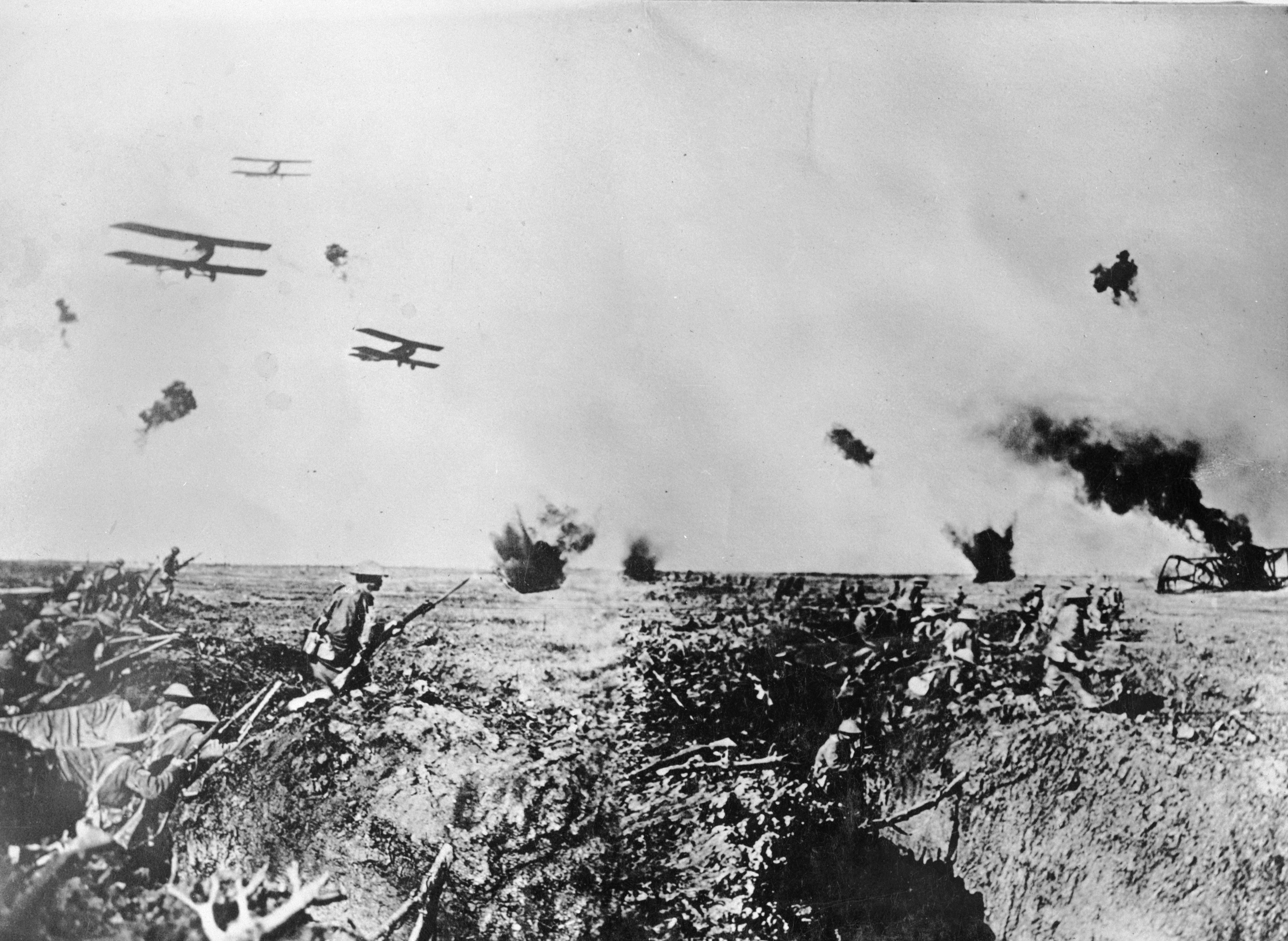
Source B
Portrait photo of Private Roland Winzel Carter from Point McLeay, SA. Carter was wounded and captured on the Western Front in 1917, held as a Prisoner of War in Germany and released at the end of the war. (AWM 2017.727.1.3)
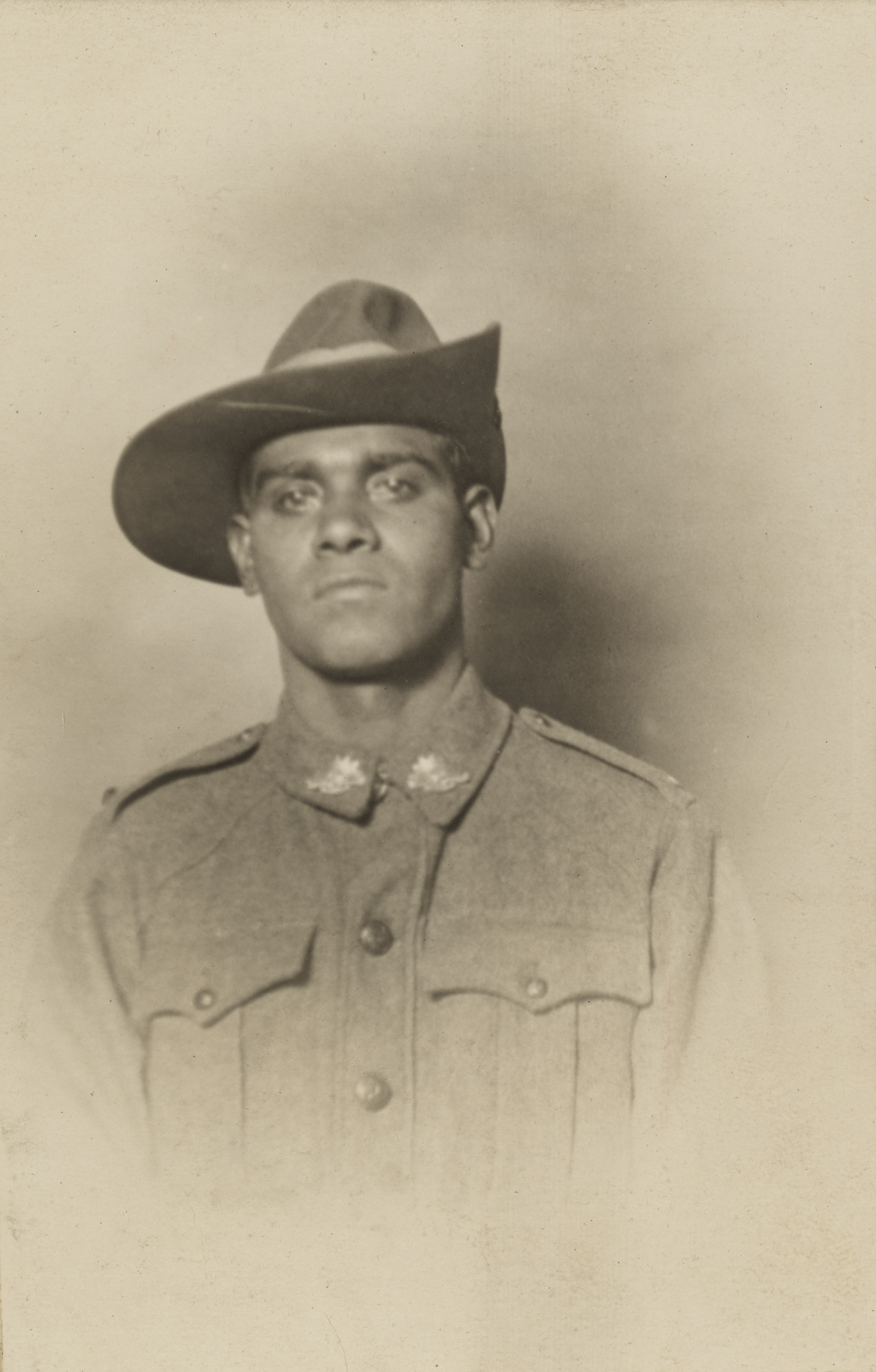
Source C
Captain C E W Bean, Official War Correspondent, in a trench on the Western Front during the winter of 1916-1917. (AWM E00572)

Source D
Australian infantrymen and light horsemen on the Gallipoli Peninsula. The soldier on the left at the back, smoking a pipe, is Trooper Andrew Powell Yeates of the 9th Light Horse, aged 54. The soldier in the foreground is his son, Private James August Yeates, who served with the 3rd Australian General Hospital. Photo taken May 1915. (AWM C00667)
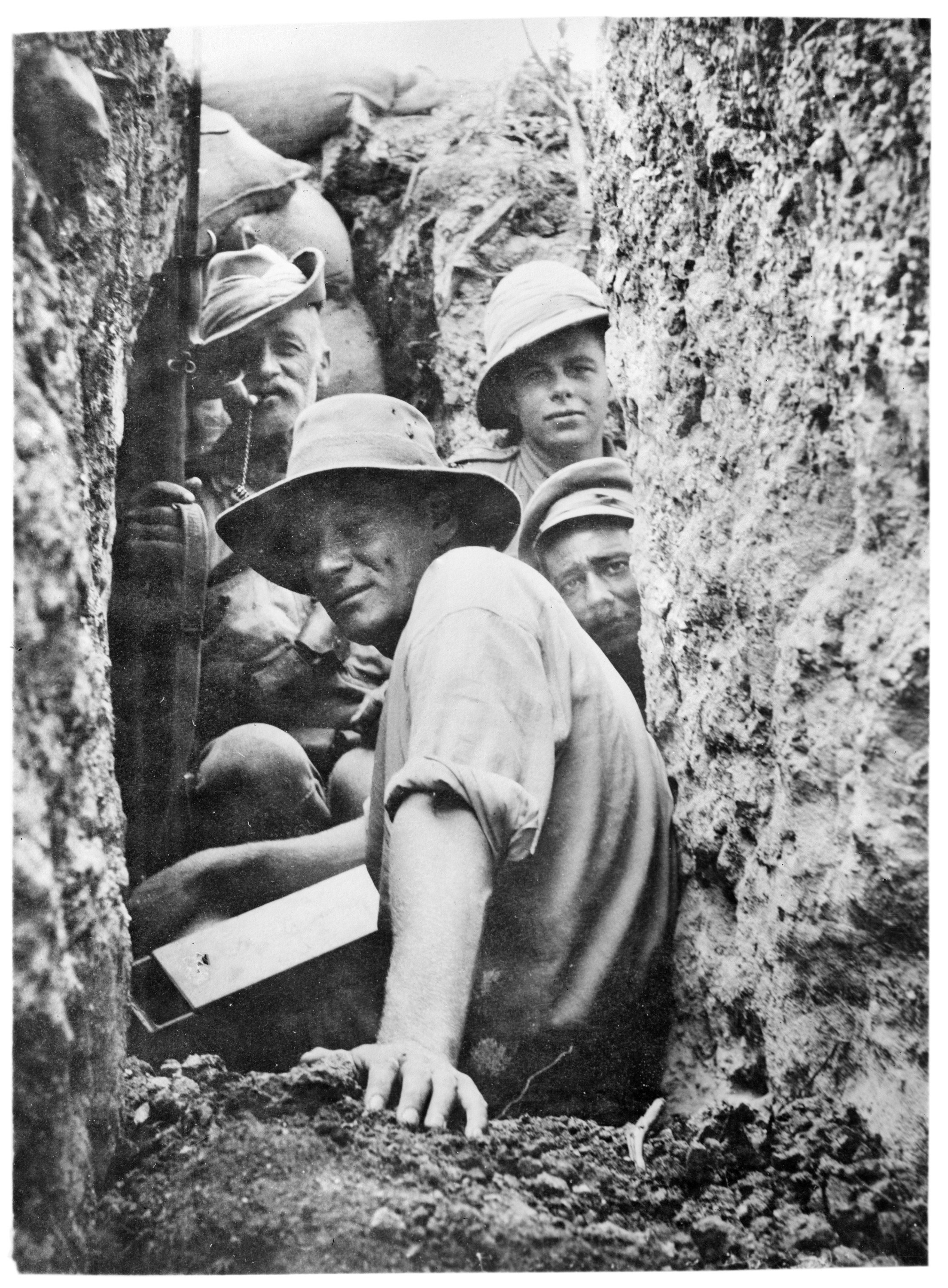
Source E
Extract from a letter written by Lieutenant J.T. Hampson from the Western Front, 15 August 1918. (AWM: 1DRL/0331)
I wonder & wonder when this nightmare is to end? Although I am right in the middle of the struggle I can see no light … Men have fallen & died every hour of the day of each year & yet the nations are no nearer their goal … tho the awfulness of the toll is realised nobody is prepared to stretch out the hand of peace… the armies go on fighting bravely … and suffering … But … every man feels that there is a limit to his endurance and that their [death?] is not so far distant or so indefinite as it was once… Every hour of the day the best men the world can produce are dying. This must go on indefinitely, so imagine if you can the quality of the next generation.
Source F
Diary entry written by Lieutenant S. R. Traill, the Western Front, March 1918. (Bill Gammage, The Broken Years, 2010, p. 198)
I found that I was to take 9 men and rush the MG post discovered the other night … Artillery support was given, and Lewis guns told off to engage neighbouring enemy guns… Off we started armed to the teeth with revolvers and bombs at 1.30 am. On arrival at our deploying point, the artillery started, and of course one blasted gun was firing short, and right over the ground we intended to crawl over. So we waited a while and shivered on the wet cold ground and then started off, found the possy … [three of us] rushed the post and found the birds had flown, evidently scared by our erratic guns. One shell had lobbed right at the foot of his parapet. After that we crawled around and tried to find patrols or runners until near daylight. Nothing doing, a blooming fiasco… We were well in the mood for sport too, and looked around for a likely pill-box, but [no luck]
Source G
Extract from a letter written by Nurse Laura Grubb from the Western Front, 14 November 1917. (AWM: PR83/040)
The strikes and general unrest all over Australia are doing a great deal of harm. I do wish one half of these agitators could be compelled to come out here and live under the conditions the men simply have to put up with — there would be no strikers, there would be no shirkers, it fairly makes one’s blood boil to think of the grasping callous crowd of men there living lives of positive luxury and armies of men out here.
2026 Simpson Prize WW2 Sources
Please Note: These sources can only be used in a response to the 2026 Simpson Prize Question about the Second World War (WW2)
Source A
Troops of Australia’s 2/7th Infantry Battalion waiting for their leave train to depart Innisfail, north Queensland, on 12 October 1943. (AWM 057894)

Source B
Australian Army Nursing Service Sisters, Jean Keer Greer of Petersham, NSW (left), and Sister Betty Jeffrey of East Malvern, Vic, in hospital in Malaya in 1945 after spending three and a half years as prisoners of war of the Japanese in the Dutch East Indies. (AWM 305369)
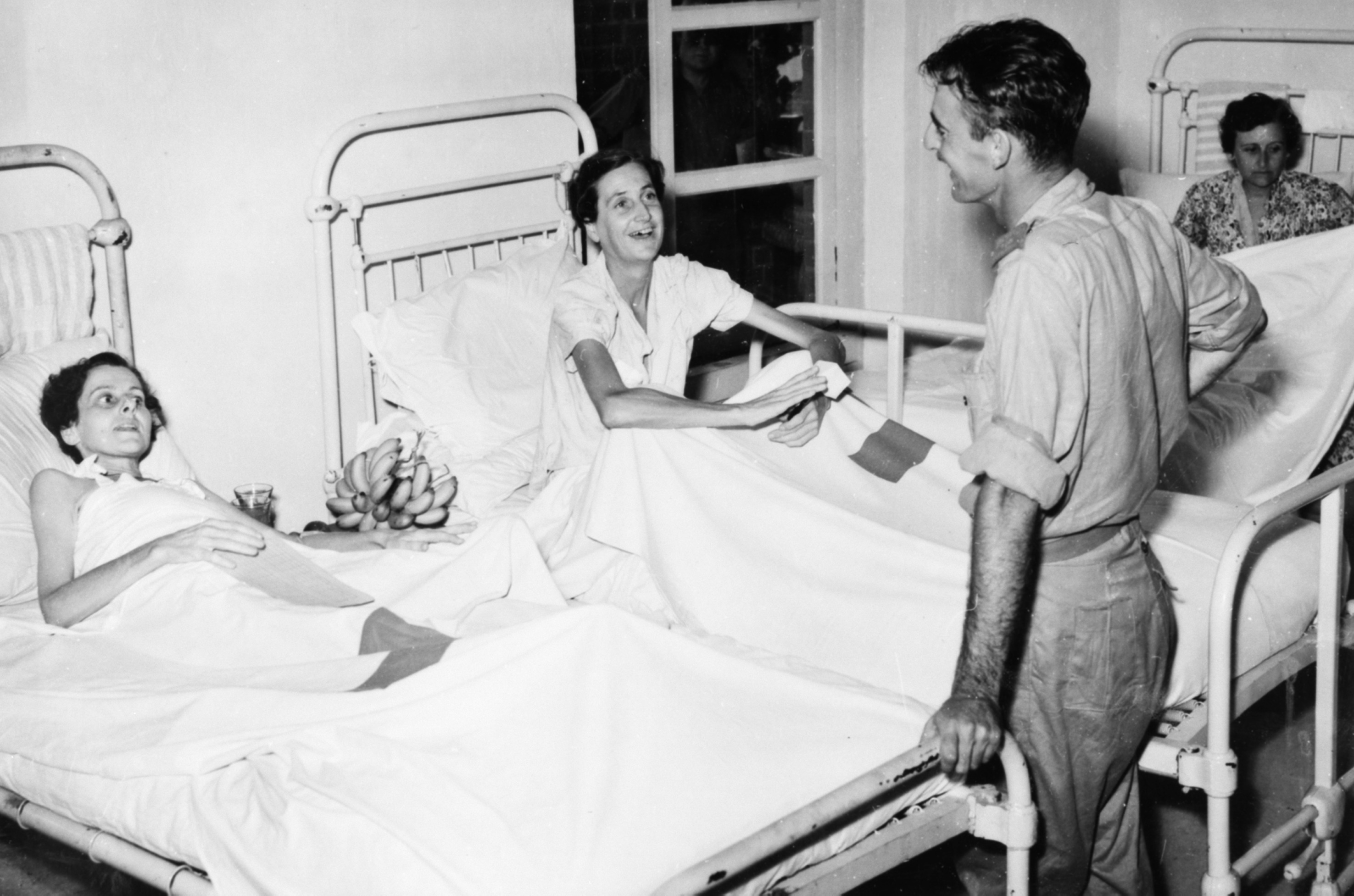
Source C
Members of the crew of "G" for George, the Lancaster aircraft of 460 Squadron RAAF in the UK. Left to right back row: Flight Sergeant (F Sgt) A G Brown, Sydney, NSW; Flying Officer (FO) R G Sampson, Mackay, QLD; FO J A Critchley DFC, Melbourne, VIC; Sergeant (Sgt) Shaw, RAF, Ramsgate, England; Sgt Knott, RAF, Walthamstow, England. Front row left to right: F Sgt M L Armstrong, Brisbane, QLD; Sgt Starkey, RAF. This aircraft has completed ninety operations. Photograph taken c. April 1944. (AWM UK1302)
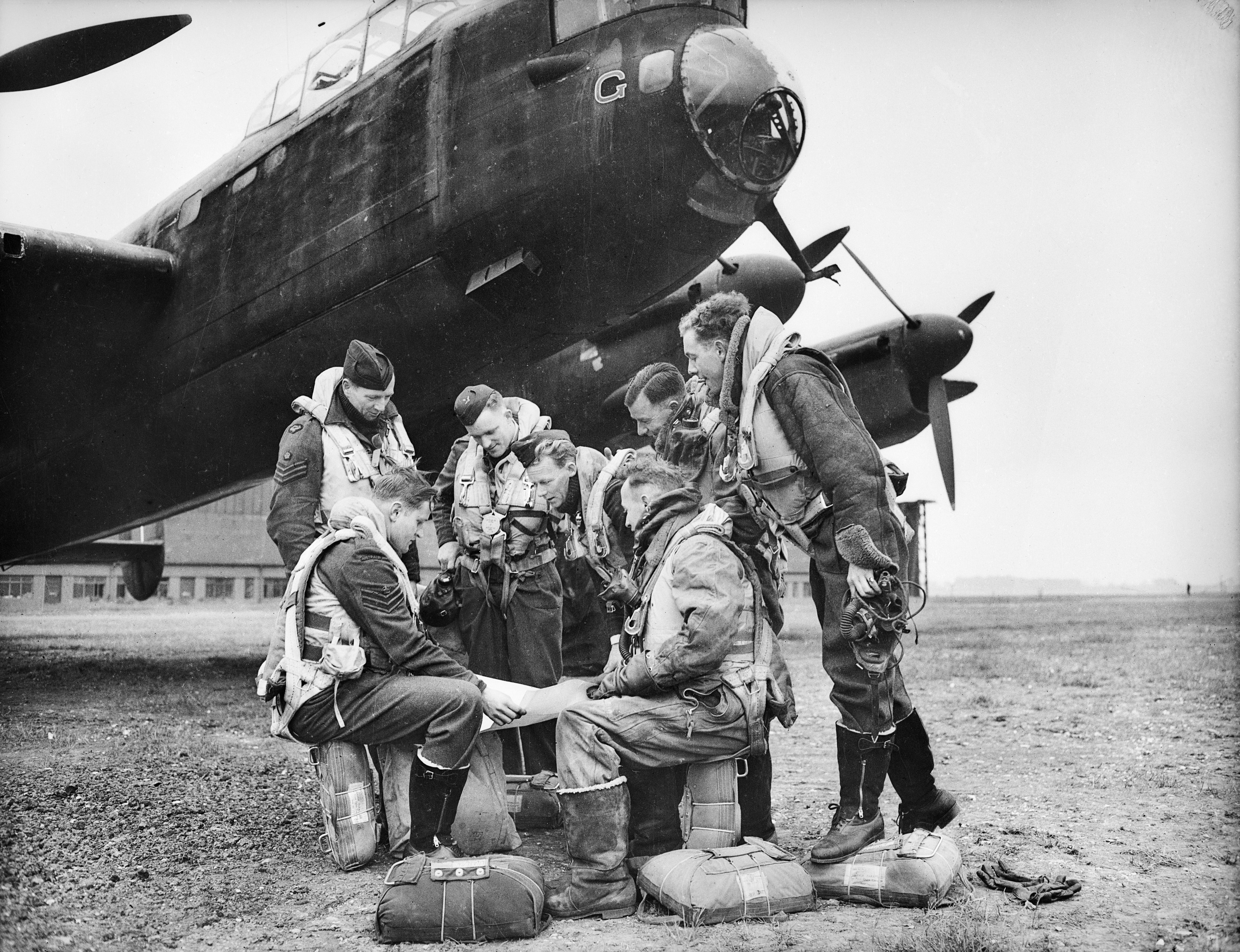
Source D
Three Australian prisoners of war classified as ‘fit’ workers by their Japanese captors on the Burma-Thailand Railway. The photo was taken secretly by Private George Aspinall while he was a prisoner of war in 1943. (AWM PO2569.192)

Source E
Extract from Lance Corporal Lindsay Negus’s letter to his mother describing his experiences in escaping capture by the German Army and being evacuated from the island of Crete in May 1940. (AWM 3DRL/4052)
It took us from the 27th to the night of the 30th May to reach our embarkation point. I was knocked over by a lorry, fell down a hill-side twice, and had no sleep for a week, frightened to go to sleep, legs and hands cut and full of thorns, but we all kept going – anything to beat our ruthless enemy. I was on board HMAS Perth and slept for a couple of hours after a cup of hot cocoa and biscuits. You have no idea of what it feels like to be safe, just going from hell to heaven. I shall never go to sleep before thanking God for bringing us out. Our arrival at port (Alexandria, Egypt) was greeted by the Red Cross with steaming hot tea and cocoa, biscuits, fruit and chocolates… All I have at present is one pair of shorts and a shirt plus my razor and pay-book. Everything that you gave me is gone, my souvenirs and things I bought to send home to you all, but never mind I still have my life thanks to our lads who fought rear-guards to keep the Hun back while most of us escaped… I know what it is like to be hungry and thirsty.
Source F
Extract from the diary of Lance Corporal P. T. Saunders, 2/8th Field Ambulance, 1 July 1941, Tobruk, North Africa. (Brian Saunders, Happy in the Service: The personal WWI and WWII diaries of P. T. Saunders, Green Hill Publishing, Adelaide, 2019)
We are having lovely clear nights with lots of stars and moonlight. I was up all night as nine wounded came in and some were serious…one had a bullet through the head, another in the left chest, then a back wound, several with legs and arm injuries, and there were trench mortar wounds again. They say that Fritz is deadly with them too, over a two to three thousand yard range.
Fritz are out laying many booby traps and mines. One type of booby trap is a mine about twelve pounds in weight, round with spikes on it to which are attached the detonators. There are three hundred and twenty-five pellets in each mine and as soon as one touches it slightly it sets off some TNT which makes the booby trap which is just under the ground, spring three feet into the air and then it bursts, and is pretty effective. They lay these out all over the place about twelve feet apart and in between set a land mine, like a frying pan, which has trip wires attached to it and when walking you trip over the wire and you set her off, and up she goes. We hear they had been placing them under dead bodies and when our chaps go out to bury the dead at night and lift them up, then up goes the mine. They have even gone to the trouble of stacking them so that if you de-activate the one on top and lift it there is one underneath that goes up.
Captain McArthur of Kadina came in wounded this morning and told me all this. He said the men, although using much bad language over the Hun, the country, the conditions etc, are nevertheless of high morale and waiting to have a go at the enemy.
The night patrols are limited to four men and they go out crawling on their tummies for hundreds and maybe thousands of yards or more, feeling the ground for these spikes and trip wires and de-activating them as they go. Two abreast with one behind them in case they miss anything, and then one with a tape that shows them the safe path back to their lines. They try to find out the strength of the enemy and other information before they go back, all the time expecting the wrath of the enemy to fall on them. They do it night after night and then if not on this they are at work digging in at night, and all day long they lay quiet in holes eighteen inches deep and wide. They lay in the broiling sun and multitudinous flies not daring to move in case the enemy snipers get them, and they are great shots too.
The country here is so full of waddies (gullies) it is possible to get Ambulances up quite close to the front line at night, and so there is no long carrying of wounded by stretcher. The longest is about a quarter of a mile, but wounded are nearly always taken out at night, some even having to lay out all day in the open until night falls. The Regimental Aid Post I am told is not up so close to the front line, but Battalion bearers carry the wounded back to it and then they are picked up by Ambulance behind some hill.
Desert sores are plentiful now and they are like our Barcoo Rot back home, hard to heal up as it keeps breaking out in fresh places and takes weeks in some cases.
A warm day, Alby, Sergeant Hood, myself and Norman Nesbit went down to ‘A’ Company at the beach and are staying down here for two days. We had just had dinner and were back on the beach when a terrific din was heard…forty to fifty German planes were over bombing Tobruk. There was Anti-Aircraft fire everywhere and then they flew back over us out to sea just skimming the water and firing their machine guns at us in the caves as they went…the bullets were chipping pieces out of the rocks near us. None were brought down as far as I know.
We are sleeping down on the rocks and in the caves on the shore. Alby and I scrounged a big net and are sleeping on it.
There have been one or two more planes over. We went to bed early.
Source G
Extracts from letter written by Flying Officer Colin Flockhart to his family, 1 December 1944. Flockhart was killed on 8 January 1945 when his Lancaster bomber was shot down on a bombing raid over Germany. (AWM 2020.22.11)
England, Dec 1. 1944
To my loved ones
Being in rather a sentimental mood tonight I have decided to do something I have meant to do for a long time – to record some of my impressions so that, if, by some chance, I should not finish my tour you will know just how I feel about things …
First of all let me say that I have enjoyed my Air Force service as I have enjoyed no other years of my life and I have been completely happy the whole time. I have travelled, made friendships and shared experiences which will stand me in good stead all my life …
This war was inevitable and I could never have been content unless I did my share, so never regret having given me your consent to enlist. I have been very proud to wear my uniform…
I believe in the cause for which we are fighting and I am equally sure that our actions are justified in the eyes of God. My faith in God never wavers and, after asking for His blessing, I go about my job in the manner you would have me do, for I feel sure that He is watching over and protecting me.
I want you to know therefore that if I do die I shall not be afraid because my heart is as ease.
Please don’t think I’m pessimistic but I do realise what the odds are and I have seen too many of my friends pass on without leaving any words of hope or encouragement behind.